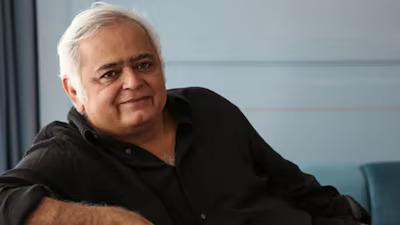
Appalled by Filth & Chaos: Hansal Mehta on Mumbai’s Infrastructure
Mumbai, the city of dreams, is often touted as the financial capital of India. However, the city’s infrastructure is a far cry from what it should be. The streets are dirty, the public transport is overcrowded, and the air is polluted. The residents of Mumbai have grown accustomed to this chaotic lifestyle, but not everyone is as desensitized to the filth and chaos that surrounds them.
Filmmaker Hansal Mehta, known for his thought-provoking films like “Aligarh” and “Simran”, recently expressed his disappointment and frustration with the state of Mumbai’s infrastructure. In a scathing tweet, he called out the residents of Mumbai for their “collective indifference” towards the city’s problems.
“How long will we continue to live like this?” Mehta asked. “I still believe I love this city…But it’s strangled by those in power…They profit from its decay and dress it up as resilience.”
Mehta’s outburst was prompted by a visit to a local train station in Mumbai, where he was appalled by the lack of basic amenities and the filth that surrounded him. He shared his experience on social media, saying, “I’ve seen better maintained stations in smaller towns. The stench, the squalor, the indifference of the people…It’s a reflection of our society’s values.”
Mehta’s comments have sparked a lively debate on social media, with many people agreeing with his sentiments and others defending the city’s infrastructure. However, the fact remains that Mumbai’s infrastructure is in dire need of an overhaul.
One of the biggest issues facing Mumbai is its traffic congestion. The city’s roads are overcrowded, and the public transport system is woefully inadequate. The result is a commuting nightmare for millions of people who call Mumbai home.
The city’s water supply is also a major concern. Mumbai faces a severe water crisis, with many areas receiving water only once a week. The lack of clean water is a major health risk, especially for the city’s poor and vulnerable populations.
Despite these challenges, the residents of Mumbai seem to have grown accustomed to the city’s chaotic lifestyle. Many people have learned to adapt to the crowds and the noise, and some even find the city’s energy and vibrancy to be a major draw.
However, not everyone is as resigned to the city’s problems. Mehta’s tweets have inspired a movement of sorts, with many people speaking out about the need for change. There are calls for improved public transport, better waste management, and more investment in the city’s infrastructure.
Mehta himself has been vocal about the need for change, saying, “We can’t just continue to exist in this state of chaos and filth. We need to demand better from our authorities and from ourselves.”
Mehta’s words have resonated with many people, including some of the city’s residents. A recent survey found that 75% of Mumbaikars believe that the city’s infrastructure is in need of improvement.
So, what can be done to address Mumbai’s infrastructure issues? One solution is to invest in public transport. The city’s buses and trains are overcrowded and unreliable, making it difficult for people to get around. Improving public transport would not only reduce congestion but also reduce the number of private vehicles on the road.
Another solution is to improve waste management. Mumbai generates a staggering amount of waste each day, much of which ends up on the city’s streets and in its waterways. Improving waste management would not only keep the city clean but also reduce the risk of disease and pollution.
Finally, there needs to be more investment in the city’s infrastructure. This includes upgrading the city’s roads, bridges, and public buildings. It also includes investing in green spaces and parks, which would not only provide a respite from the city’s chaos but also help to reduce pollution and improve air quality.
In conclusion, Hansal Mehta’s outburst about Mumbai’s infrastructure is a wake-up call for the city’s residents and authorities. The city’s filth and chaos are not just a reflection of its infrastructure but also of its values and priorities. It’s time for Mumbaikars to demand better from their city and from themselves. As Mehta said, “How long will we continue to live like this? It’s time for a change.”






